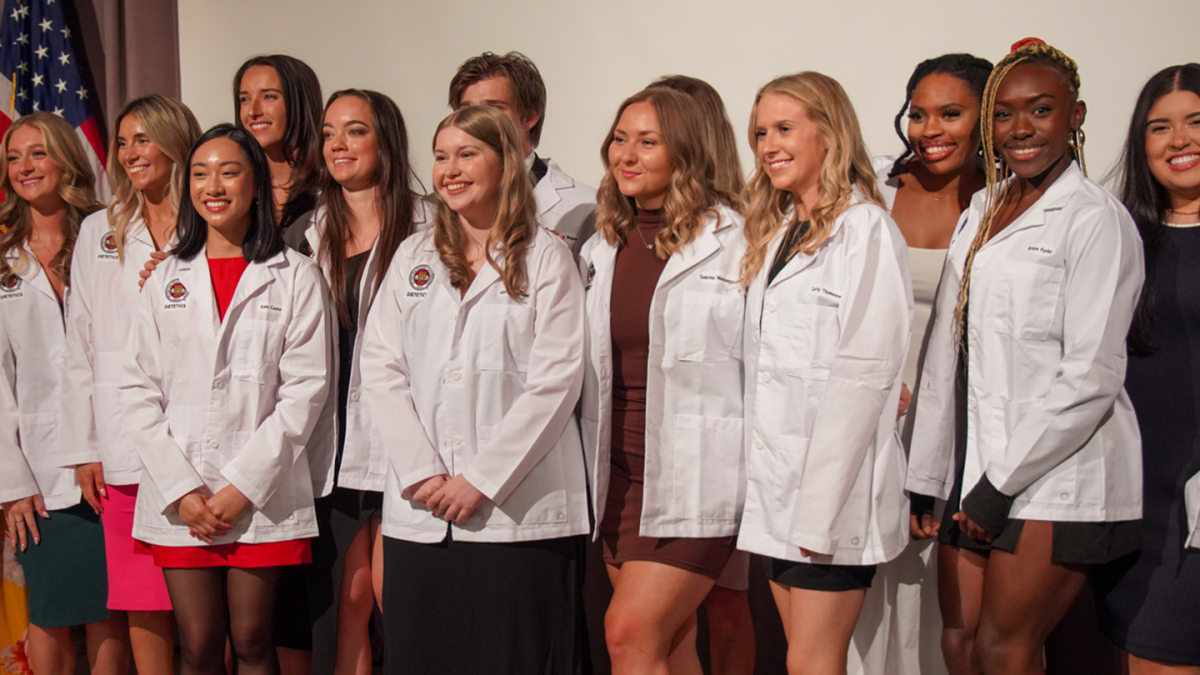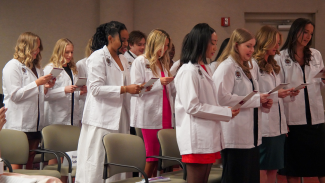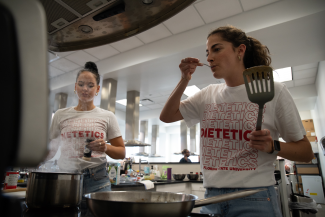Dietetic Internship White Coat Ceremony
Each spring, second-year dietetic interns receive a white coat, signifying their entry into clinical rotations and direct interactions with patients and communities.

Each spring since 2023, the Anne Spencer Daves College of Education, Health, and Human Sciences gathers faculty, staff, students, families, alumni, and preceptors to celebrate a major milestone in the journey of Florida State University’s dietetic interns: the White Coat Ceremony.
The annual event honors students in the Dietetic Internship and Individualized Supervised Practice Pathway (ISPP) as they officially receive their white coats—an emblem of their entry into clinical rotations and the next phase of their professional training. For these students, the white coat represents more than just a uniform; it symbolizes their commitment to ethical practice, compassionate care, and the pursuit of excellence in the field of dietetics. The ceremony also includes remarks from program leaders, alumni, and guest speakers—many of whom offer guidance, encouragement, and insight into the real-world responsibilities that lie ahead.

During the ceremony, students are introduced by faculty and coated by the Dietetic Internship Program Director. In donning their white coats, students embrace their future roles as ambassadors of health, advocates for nutrition, and role models for healthy living. After receiving their white coats, students stand together to recite an oath—an outward promise to serve others with knowledge, empathy, and integrity as they step into their roles as health professionals.
Select students are recognized for their leadership, perseverance, service, and innovation through awards and scholarships presented at the end of the ceremony. These recognitions highlight the diverse strengths and personal stories that each student brings to the profession.

Students in the dietetic internship are pursuing master’s degrees in either Nutrition and Food Science or Exercise Physiology with a major in Sports Nutrition. In addition to rigorous coursework, these students complete 1,200+ hours of supervised practice in clinical nutrition, community nutrition, and food service systems management—an essential step before they can sit for the exam to officially become Registered Dietitians.
To become a Registered Dietitian Nutritionist (RDN), students must complete an accredited dietetics baccalaureate program, earn a graduate degree, finish a supervised dietetic internship, and pass a national registration exam. In Florida, they must also obtain a state license to practice.